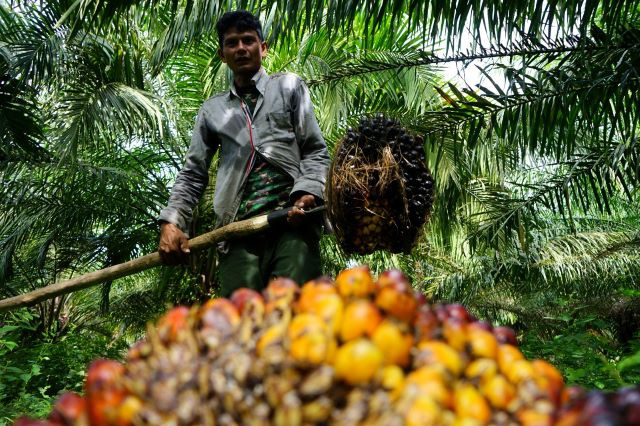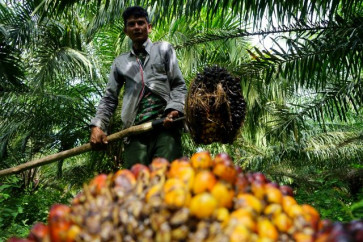Popular Reads
Top Results
Can't find what you're looking for?
View all search resultsPopular Reads
Top Results
Can't find what you're looking for?
View all search resultsImproving the traceability of RI sustainable palm oil to meet EUDR
Following the challenges for Indonesia's palm oil exports last year, 2024 presents an opportunity to ramp up the country's global profile and leadership in sustainable palm oil; if the next government is ambitious enough.
Change text size
Gift Premium Articles
to Anyone
P
alm oil exports were a challenging, high-profile issue for Indonesian diplomats in 2023, particularly concerning European Union-Indonesia trade deal negotiations and the EU Deforestation Regulation (EUDR) that have caused unhappiness at the highest levels.
However, the coming year offers an opportunity for Indonesia to turn its impressive track record in decoupling oil palm production from forest clearance into a market-leading global offer on sustainable palm oil, as well as make this part of its growing profile as a global leader.
European and global attitudes to Indonesian palm oil are still shaped by images of burning forests and the resulting smog issue of the last decade, and have not caught up with the government’s impressive performance in dramatically reducing deforestation and largely break its link to oil palm production.
Our estimate, based on Environment and Forestry Ministry data, is that 99 percent of Indonesian palm oil was deforestation-free by the EUDR’s cutoff date.
The 2022 data indicates that 104,000 hectares of forests were lost, but less than half of this was likely palm-related. Policy frameworks, such as the forest and palm oil concession moratorium and forest and other land use (FOLU) net sink, limit large-scale deforestation driven by oil palm concessions.
This means Indonesia's palm oil has a low risk of deforestation and should not be subject to further due diligence by the EU market. The European market must consider the performance of producer countries and refrain from applying high-risk categorizations for countries with forest landscapes.
In the highly competitive palm oil market, excluding forest landscapes could redirect sourcing from those areas to conventional markets, rendering the EUDR’s ultimate goal of protecting forests a failure.



















